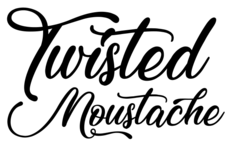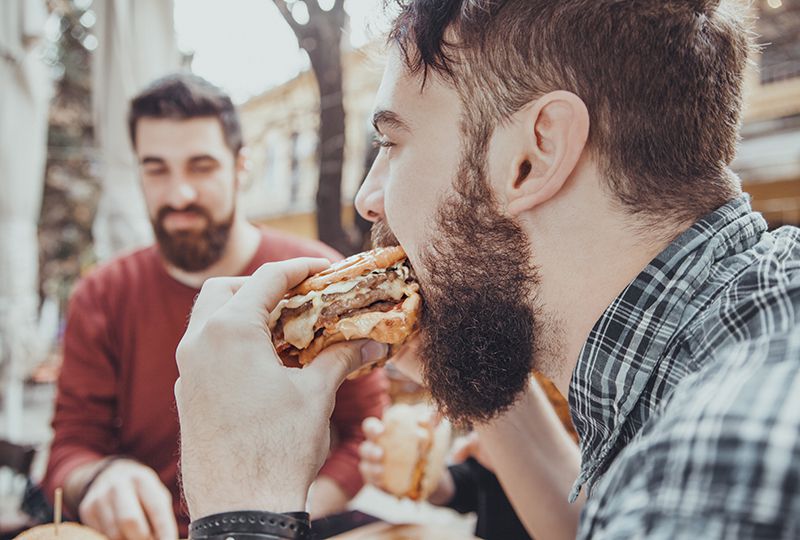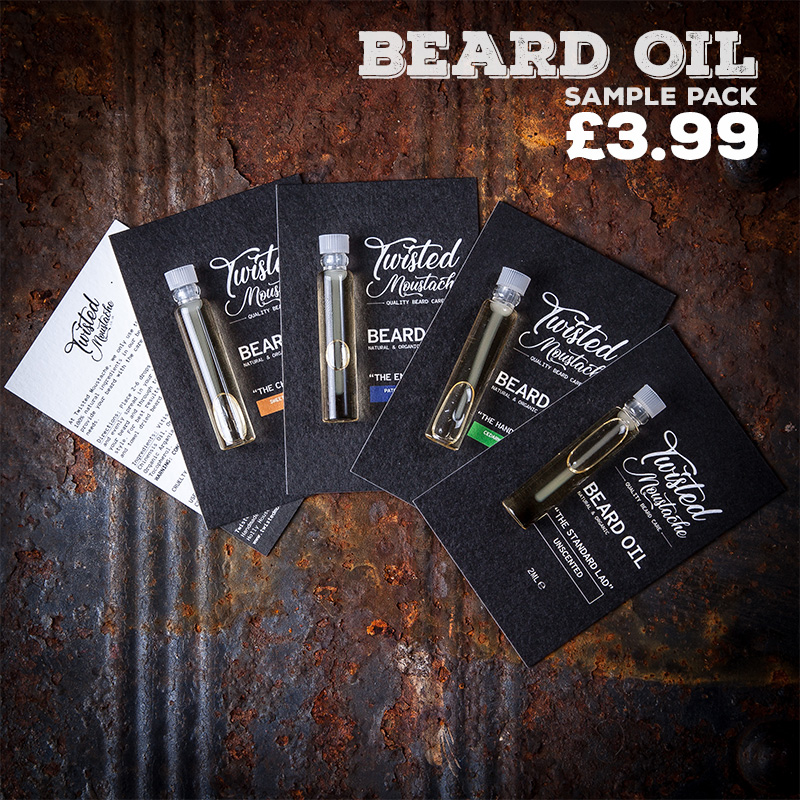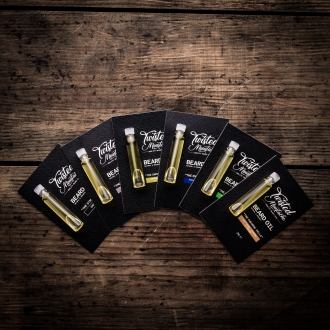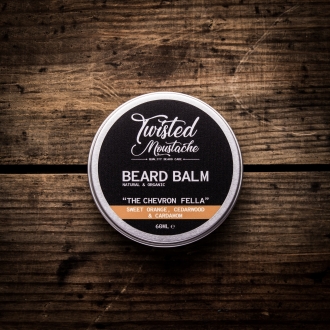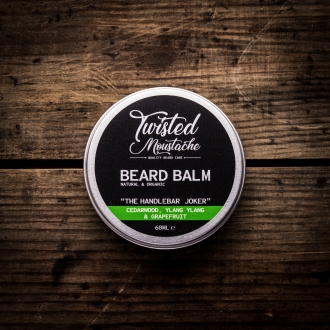How Does Your Diet Affect Your Beard Growth?
By Jack Shaw (Guest Post) | Last updated 30th October 2023Are you struggling to grow a thicker and longer beard? Your diet might be holding you back. The foods and drinks you consume can significantly impact the health of your skin and hair follicles. Let’s explore the scientific connection between diet and beard growth, then go through some helpful changes you can make to get a better beard.
The Biology of Beard Growth
For starters, it’s important to note that your facial hair is no different from the hair on your other body parts. If you want to accelerate your beard growth through dietary changes, the hair on the rest of your body might grow faster too. Every hair follicle you have goes through the same biological process in order to grow.
The roots of each strand of hair — also known as hair bulbs — are located inside the dermis. The bulbs are constantly forming new cells that stick together and form hair strands that eventually poke through the dermis and epidermis. A single strand of hair grows one centimetre per month on average, but the growth rate can significantly vary based on a number of factors:
- Location: The hair on our heads tends to grow much faster than our body hair, eyebrows and eyelashes. Vulnerable spots around your ears, nose and lips might also grow hair more quickly than other body parts. Even if you want to grow a thicker beard, you should trim these beard hair areas frequently to maintain a well-groomed appearance.
- Biological sex: Men generally grow hair at faster rates than women due to higher testosterone levels. Keep this factor in mind for later in the article.
- Age: Human hair grows the fastest between the ages of 15 and 30 for most people, and then the growth rate slows down once the ageing process begins to accelerate.
- Individual genetics: Some people are blessed with thick wavy locks, symmetrical hairlines and the ability to grow a full beard. Other people are prone to conditions like alopecia and can hardly grow any facial hair.
- Overall health: People with active lifestyles and balanced diets are more likely to experience healthier hair growth than people who are inactive and malnourished.

For most of your life, your hair buds remain in the growth phase or anagen phase. The hair on our scalps can have a growth phase that lasts for many years, while the growth phase for our eyelashes and eyebrows only lasts a few months to ensure it doesn’t grow out of proportion. In other words, your body is fully aware of the length of each individual hair.
At the end of the growth phase, the hair bud’s roots separate from the papilla in the dermis, which starts the transition phase, or the catagen phase. The hair bud no longer has any blood supply, so the skin pushes it out. New hair cells begin to multiply inside the empty hair follicle and form a new hair bud, starting the growth phase all over again.
If you want to grow a thicker beard, you need to delay the transition phase and keep your facial hair in the growth phase. You can use beard oil to keep your skin moisturized and provide the hair follicles with different nutrients, but getting the nutrients through natural food is more effective than getting them from an artificial source.
Let’s get into the specific nutrients that play a role in growing your hair.
Nutrients That Benefit Hair Growth

There are many nutrients that can positively affect your hair growth. Here are the most important nutrients — and some food sources — that you should prioritize to speed up your beard growth.
Protein
Protein is the most essential compound for growing healthy hair. One of your hair’s main ingredients is keratin, a common fibrous structural protein also found in your skin, nails and internal organs. It plays a significant role in growing new cells in these areas. You can maintain or replenish your body’s keratin supply through a high-protein diet consisting of these foods:
- Eggs
- Red meat
- Chicken
- Fish and shellfish
- Dairy products
Increasing your protein intake may also raise your testosterone levels, which can be a huge difference-maker. The spike in testosterone that males experience during puberty directly leads to more facial hair growth. However, it’s important to note that higher testosterone leads to oilier skin. You must work extra hard to clean the skin under your beard once you change your diet.
If you want to experience another spike in testosterone to stimulate more hair growth as an adult, try consuming these foods:
- Milk
- Grapes
- Pomegranates
- Tuna
- Oysters
- Garlic
- Nuts and seeds
- Leafy greens
You could take a testosterone booster instead of changing your diet, but these products also raise your dihydrotestosterone (DHT) levels. If you’re genetically predisposed to balding, the sudden spike of DHT can accelerate hair loss and make your beard look worse. Once again, you should take a natural approach and get your protein and testosterone from organic sources.
Fats
Monounsaturated and polyunsaturated fats also play a huge role in affecting your hair growth — specifically omega-3 fatty acids. Omega-3 is a common polyunsaturated fatty acid that strengthens your cell walls and thus promotes healthier skin, hair and nails. Saturated fats are harmless in moderation, but excessive consumption is bad for your skin.
Seafood is an excellent source of omega-3 fatty acids and a great source of protein, especially shellfish such as crab, lobster and oysters. Fish like salmon, sardines and mackerel are also packed with omega-3s. If seafood isn’t your taste, you can get your healthy fats from nuts and vegetables like avocados, soybeans, walnuts and flax seeds.
Although healthy fats can positively affect your beard growth, you must be careful not to consume too much fat per day. A high-fat diet leads to dry skin and beard dandruff as the dead skin cells start to shed away.
Carbohydrates
Carbohydrates are the main types of food that provide your body with vitamins and minerals, many of which are essential for hair growth. A diet with plenty of grains, fruits and vegetables will give you all of these important nutrients:
- Vitamin A: Vitamin A is a powerful antioxidant that promotes skin oil production and supports the health of skin cells. Tomatoes, mangos, cantaloupes and leafy greens are great sources.
- Vitamin C: Vitamin C is a vital ascorbic acid that assists with the growth and repair of all body tissue, including skin cells and hair follicles. Berries, citrus fruits, potatoes and cabbage are rich in ascorbic acid.
- Vitamin K: This is a crucial vitamin for testosterone production and hair growth stimulation. Leafy greens and fruits like blackberries and kiwis have high levels of this rare vitamin.
- Biotin: Biotin promotes the production of keratin, the main protein found in hair follicles. Bananas, raspberries, whole wheat bread and nut butter all contain healthy amounts of biotin.
- Selenium: Another essential nutrient for testosterone production is selenium. You can get plenty of selenium from rice, pasta, oatmeal and Brazil nuts.
- Zinc: Zinc is a versatile nutrient that helps with immune function, oxidative stress and apoptosis during the ageing process. It also maintains testosterone levels and prevents premature grey hairs.
- Iron: This mineral produces hemoglobin, which is a protein that transports oxygen throughout the body. Hair loss is a common symptom of iron deficiency. You can get your iron from wholemeal bread, pasta, dried fruit, beans and leafy greens.
- Calcium: Calcium assists with the secretion of androgen hormones, including testosterone and biotin. Dairy products and almonds are excellent sources of calcium.
- Potassium: Potassium speeds up the cell renewal process and revives dormant hair follicles, leading to fuller hair. Bananas, watermelons, sweet potatoes and leafy greens are rich in potassium.
These nutrients have unique functions, but you might have noticed that they have some overlap in food sources. If you want to efficiently consume these vitamins and minerals, you must incorporate a balanced diet of whole grains, fruits and vegetables. These carbohydrates will fill your body with energy and help you maximize your beard’s potential.
Dietary Mistakes to Avoid for Beard Growth

So far, we’ve only talked about the positive dietary guidelines you should follow to improve your beard growth. Now it’s time to review the dietary mistakes you need to avoid. Here are the top five things you shouldn’t do if you want to grow a full and healthy beard.
1. Don’t Consume Too Much Salt
Salt is a great mineral in moderation, but the modern diet of processed foods is already packed with salt. Our bodies secrete sodium through the skin, which means that consuming too much salt blocks up our pores and interferes with hair growth. Removing fast food and greasy snacks from your diet — even while on trips — will help you avoid this mistake.
2. Don’t Load up on Sugar
Loading up on sugar is unhealthy for many reasons, but it’s particularly problematic for hair growth because it causes an abrupt drop in testosterone due to the influx of glucose and fructose. You might have to stop eating your favourite candies from the corner store if you want a thicker beard.
3. Don’t Be a Caffeine Junkie
Caffeine is a great nutrient in moderation, but excessive amounts of caffeine cause an unhealthy spike of adrenaline, which triggers the stress hormone cortisol. Cortisol’s job is to curb nonessential bodily functions such as hair growth. A cup of coffee in the morning is fine, but don’t be a caffeine junkie and drink coffee throughout the day.
4. Don’t Eat Too Many Fiber-Rich Foods
Fibre might be important for gut health, but it can be detrimental to your beard’s growth. The problem is that many fibre-rich foods contain phytate, which could have a negative effect on zinc absorption. If your zinc absorption gets suppressed, your testosterone levels will drop.
5. Don’t Smoke or Vape
This mistake technically doesn’t pertain to your eating habits, but it still involves consuming harmful substances. Inhaling tobacco products increases the risk of hair loss by damaging your existing hair follicles and increasing your body’s oxidative stress. If you want to see improvements in your facial hair, you need to avoid smoking or vaping.
Eat Your Way to a Fuller Beard
It should come as no surprise that eating a balanced diet of proteins, healthy fats and various carbohydrates can lead to a healthier beard. In order for any man to unlock his full facial hair potential, he must clean up his eating habits and prioritize the right nutrients. Use this guide to eat your way to a fuller beard!
Author Bio
Jack Shaw is a writer, editor and grooming enthusiast. His explorations of men's health, fitness and fashion can all be found on Modded, a men's lifestyle publication on which he serves as the senior writer.

